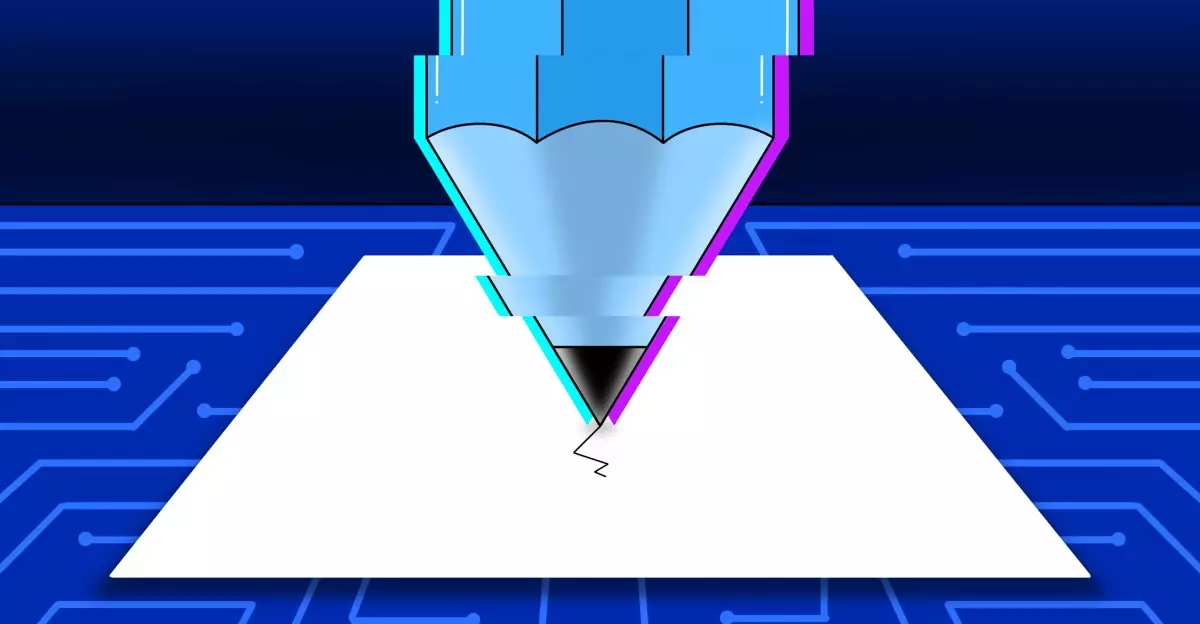As the world embraces the artificial intelligence (AI) revolution, the competition between nations is becoming increasingly pronounced. OpenAI, the organization behind the advances in cutting-edge AI technologies like ChatGPT, has made a striking case for why it needs greater access to copyrighted data. The argument rests on the premise that if the United States fails to adapt its policies governing copyrighted data, it risks ceding the lead in AI development to countries like China. This assertion is not only about corporate interests but rather touches on the broader implications for national security and technological supremacy in a rapidly evolving digital age.
OpenAI’s sentiments were echoed in a recent submission made to the White House, which initiated an outreach effort to gather input for President Trump’s ambitious “AI Action Plan.” This plan aims to solidify America’s status as a dominant force in the AI sector while mitigating regulations that could hinder innovation. The call for fair use protections comes amidst increasing anxieties about the pace at which countries like China are developing their own AI capabilities, potentially leaving the U.S. in a precarious position.
Fair Use: A Matter of National Security?
OpenAI has taken the bold stance of framing the need for access to copyrighted materials as a “matter of national security.” This notion raises several questions. Is it plausible to argue that the U.S. must allow AI companies to utilize copyrighted data to fortify its global standing? Certainly, historical examples in technology show that access to high-quality data is integral for training effective AI models. However, this justification skews dangerously close to prioritizing economic competition over individual rights and intellectual property.
Citing the People’s Republic of China’s (PRC) approach to data accessibility, OpenAI contends that Chinese developers are likely to leverage copyrighted content without the same legal restrictions that American companies face. If this disparity persists, the American AI landscape could stagnate. This perspective exposes an ethical conundrum: should the U.S. sacrifice copyright norms in the name of maintaining a competitive edge? At its core, this debate asks us to weigh the value of innovation against the potential consequences for creators whose works might be used without their consent.
The Complicated Intersection of Innovation and Ethics
Google, a potent player in the AI space, aligns itself with OpenAI, asserting that existing copyright frameworks can obstruct necessary data access for training leading AI models. Their perspective adds layers to an already complex conversation about the fine balance between fostering innovation and respecting the rights of original content creators. Google’s mention of “text and data mining exceptions” hints at potential solutions, advocating for reforms that could facilitate collaboration between technology firms and content creators without significantly infringing on rights.
Anthropic, another AI company, takes a somewhat different approach. Rather than emphasizing copyright issues, they focus on national security assessments for AI technology and bolster calls to strengthen export controls on AI chips. This delineation indicates that variousStakeholders in the AI field recognize the challenge of navigating intellectual property while simultaneously pursuing aggressive growth strategies.
The Legal Backlash: A Difficult Path Ahead
Despite these arguments, the AI landscape is not unscathed by legal repercussions. OpenAI is currently entangled in multiple lawsuits from prominent news outlets, including The New York Times, and celebrity creators like Sarah Silverman and George R.R. Martin. The accusations primarily revolve around the alleged scraping of copyrighted content without appropriate permissions, raising significant ethical and legal concerns. Even tech giants like Apple and Nvidia have faced scrutiny regarding their practices of training AI on copyrighted material.
As lawsuits continue to proliferate, the ongoing struggle between technological advancement and the right to intellectual property underscores a broader societal dilemma: How do we evolve in the age of AI without dismantling the foundational principles that protect creativity and innovation? The demand for data access is pressing, but it cannot come at the expense of individual rights and the principles of ownership.
The clamor for legislative changes to facilitate greater access to data in the name of national security could indeed alter the landscape of AI development in the U.S., yet it must also consider, justice for creators—more than just economic competition. The complexities of this issue underline that the road ahead is fraught with both opportunities and challenges, all while the world watches keenly to see how the U.S. navigates this critical juncture in technological evolution.

